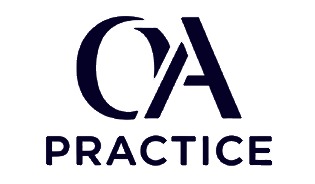C180 Introduction to Psychology - Set 2 - Part 1
Test your knowledge of technical writing concepts with these practice questions. Each question includes detailed explanations to help you understand the correct answers.
Question 1: A researcher who takes methodical notes while observing workplace interactions without interfering or using recording devices is employing which specific data collection method commonly used in psychology?
Question 2: When chronic workplace stress leads to frequent colds and slow wound healing due to suppressed immune function, which biological mechanism explains these health problems?
Question 3: A person who structures their daily life to avoid emotional closeness and feels uncomfortable with intimacy in relationships demonstrates which attachment pattern from childhood?
Question 4: The two main parts of the reticular formation that help maintain wakefulness and produce nervous system reactions through hypothalamic input are called what?
Question 5: If asked about potentially illegal activities that could have legitimate purposes, professionals should assume positive intent rather than immediately rejecting requests. This guideline demonstrates which principle?
Question 6: When witnesses read newspaper accounts and watch television reports about crimes they observed, causing their actual memories to change, this exemplifies which memory process?
Question 7: The lowest part of the brainstem controlling automatic breathing, swallowing, and blood circulation without conscious effort is anatomically identified as which structure?
Question 8: Research participants who aren't randomly selected, causing certain characteristics to appear more frequently than in the general population, create which methodological problem?
Question 9: When someone's memory of studying improves because they drink coffee while learning and again during recall, this demonstrates which memory principle?
Question 10: The scientific process of testing proposed explanations through systematic methods to validate or refute theories is formally termed which research activity?
Question 11: Groups use behavioral expectations and penalties to guide member actions in appropriate directions. These guides enforced through consequences are specifically called what?
Question 12: When majority group pressure causes minority position holders to doubt their correctness on difficult tasks and change their views, this illustrates which phenomenon?
Question 13: Romantic relationships featuring sexual desire and emotional closeness without conscious long-term commitment decisions represent which love combination according to psychological models?
Question 14: Glands that secrete substances directly into the bloodstream rather than through ducts to the body's exterior are classified as which system?
Question 15: A consistent measurement tool that repeatedly produces identical results but measures something other than what researchers claim represents which methodological issue?
Question 16: When former athletes show unsteady walking patterns due to repeated head impacts affecting their coordination and balance control center, which brain structure is damaged?
Question 17: Information loss shortly after encountering it because processing wasn't sufficient to enter long-term memory represents which forgetting mechanism?
Question 18: The professional standards organization representing psychologists nationally while establishing ethical guidelines for research and practice is formally known as what?
Question 19: When people believe others have correct information about ambiguous situations and change their behavior accordingly, this represents which type of social influence?
Question 20: Hormones that regulate fluid levels, control metabolism, and coordinate stress responses throughout the body are produced by which interconnected system?
Need Guaranteed Results?
Our exam support service guarantees you'll pass your OA on the first attempt. Pay only after you pass!
Get Exam Support